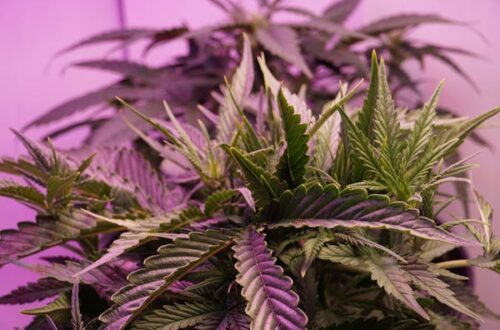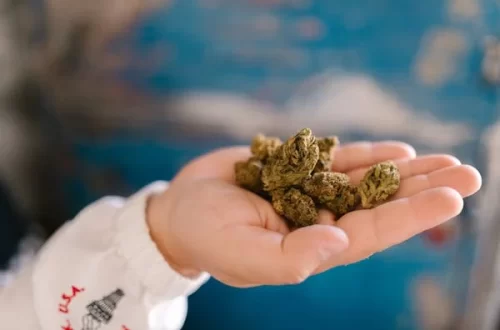THCa Flower Benefits: Nature’s Answer to Better Health
In recent years, the interest in cannabis and its derivatives has surged, with many seeking natural alternatives for health and wellness. Among the various compounds found in cannabis, THCa (tetrahydrocannabinolic acid) has gained attention for its potential benefits. Unlike THC, Beginner’s guide to THCa Flower is non-psychoactive, making it an appealing option for those looking to harness the therapeutic properties of cannabis without the high.
Understanding THCa
THCa is a cannabinoid found in raw and live cannabis plants. It is the precursor to THC, the compound responsible for the psychoactive effects of cannabis. When cannabis is heated through smoking, vaping, or cooking, THCa flower converts to THC. This process, known as decarboxylation, alters the chemical structure, leading to the psychoactive effects associated with cannabis use.
In its raw form, THCa offers a range of potential health benefits without the intoxicating effects. This makes it an attractive option for individuals seeking therapeutic benefits without altering their mental state.
Potential Health Benefits of THCa
Research into THCa is still in its early stages, but preliminary studies and anecdotal evidence suggest several potential health benefits:
- Anti-inflammatory Properties: THCa may help reduce inflammation, making it beneficial for conditions such as arthritis and other inflammatory diseases.
- Neuroprotective Effects: Some studies indicate that THCa may protect brain cells, potentially offering benefits for neurodegenerative diseases like Alzheimer’s and Parkinson’s.
- Anti-emetic Properties: THCa may help alleviate nausea and vomiting, which can be particularly beneficial for patients undergoing chemotherapy.
- Appetite Stimulation: While THC is known for increasing appetite, THCa may also play a role in stimulating hunger, which can be helpful for individuals with appetite loss due to medical conditions.
Scientific Studies and Evidence
While research on THCa is limited compared to THC and CBD, several studies have highlighted its potential benefits. A study published in the “British Journal of Pharmacology” found that THCa exhibited anti-inflammatory properties in animal models. Another study in the “Journal of Neuroimmune Pharmacology” suggested that THCa might have neuroprotective effects, offering hope for those with neurodegenerative conditions.
These findings, though preliminary, provide a foundation for further research into the therapeutic potential of THCa. As more studies are conducted, a clearer understanding of its benefits and mechanisms of action will emerge.
Case Studies and Real-World Applications
Several anecdotal reports and case studies have highlighted the potential benefits of THCa for various health conditions. For instance, some patients with chronic pain have reported relief after incorporating THCa-rich products into their regimen. Similarly, individuals with inflammatory conditions have noted improvements in symptoms when using THCa.
These real-world applications underscore the potential of THCa as a natural remedy for various ailments. While more research is needed to substantiate these claims, the growing body of anecdotal evidence is promising.
How to Use THCa
THCa can be consumed in several ways, each offering different benefits:
- Raw Cannabis Juicing: Juicing raw cannabis leaves and flowers is a popular method for consuming THCa. This method preserves the cannabinoid in its natural form, allowing users to benefit from its properties without psychoactive effects.
- Tinctures and Oils: THCa tinctures and oils provide a convenient way to incorporate this cannabinoid into your daily routine. These products can be added to food or beverages or taken sublingually for faster absorption.
- Topicals: For localized relief, THCa-infused creams and balms can be applied directly to the skin. This method is particularly beneficial for addressing inflammation and pain in specific areas.
Considerations for Use
When exploring THCa products, it’s important to choose high-quality options from reputable sources. Look for products that have been third-party tested to ensure purity and potency. Additionally, consult with a healthcare professional before incorporating THCa into your wellness routine, especially if you have underlying health conditions or are taking other medications.
Legal Status and Availability
The legal status of THCa varies by region, as it is often classified under the same regulations as THC. In areas where cannabis is legal for medical or recreational use, THCa products are more readily available. However, in regions with stricter cannabis laws, access to THCa may be limited.
As the legal landscape surrounding cannabis continues to evolve, the availability and acceptance of THCa are likely to increase. This will provide more individuals with the opportunity to explore its potential benefits.
Conclusion
THCa represents a promising avenue for those seeking natural health solutions. With its potential anti-inflammatory, neuroprotective, and anti-emetic properties, this non-psychoactive cannabinoid offers a range of benefits without the high associated with THC. While research is still in its infancy, the growing interest in THCa and its applications suggests a bright future for this compound in the world of natural health and wellness.
As more studies are conducted and awareness grows, THCa may become a staple in the toolkit of those seeking alternative therapies. Whether through raw cannabis juicing, tinctures, or topicals, THCa provides a versatile option for those looking to enhance their well-being naturally.





